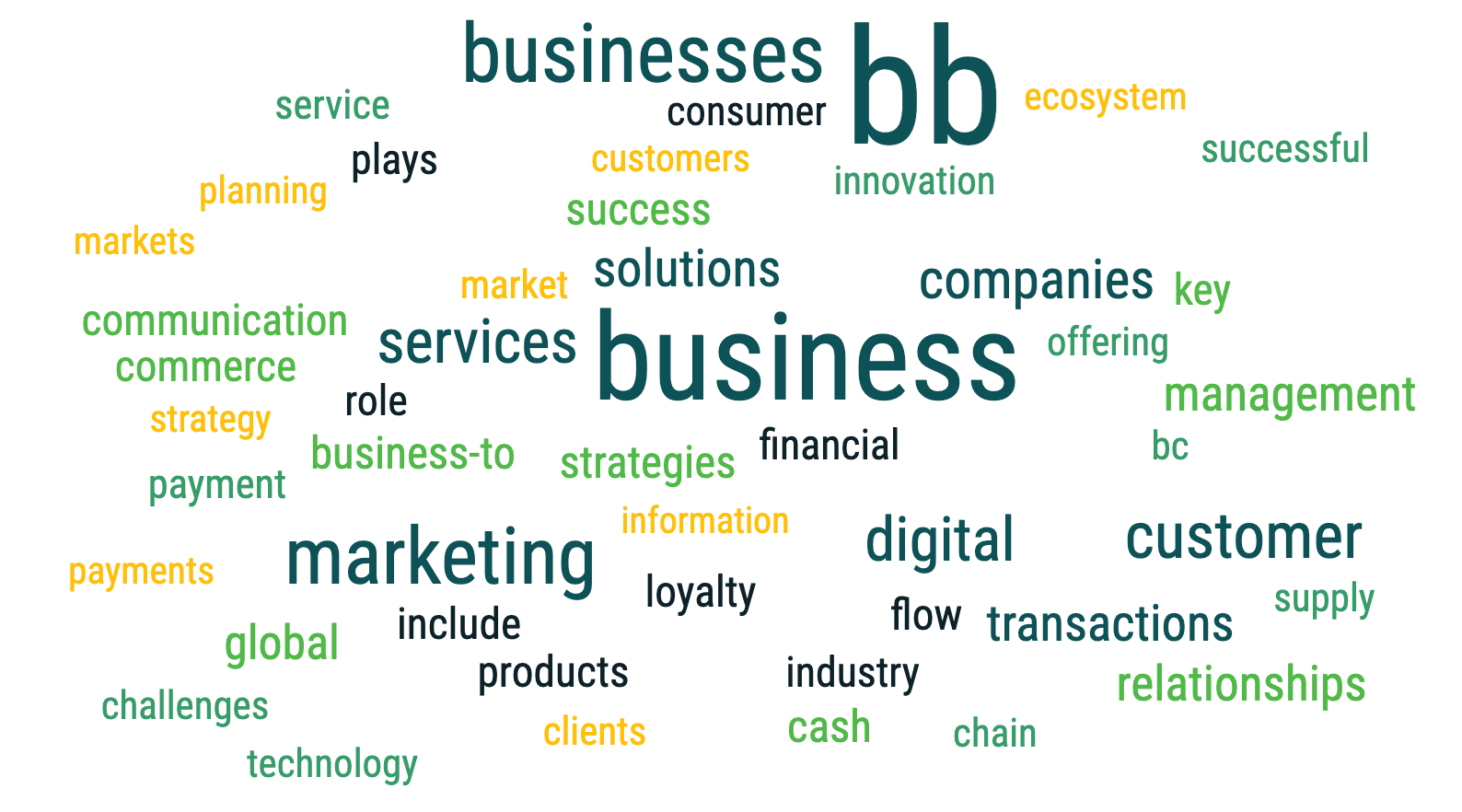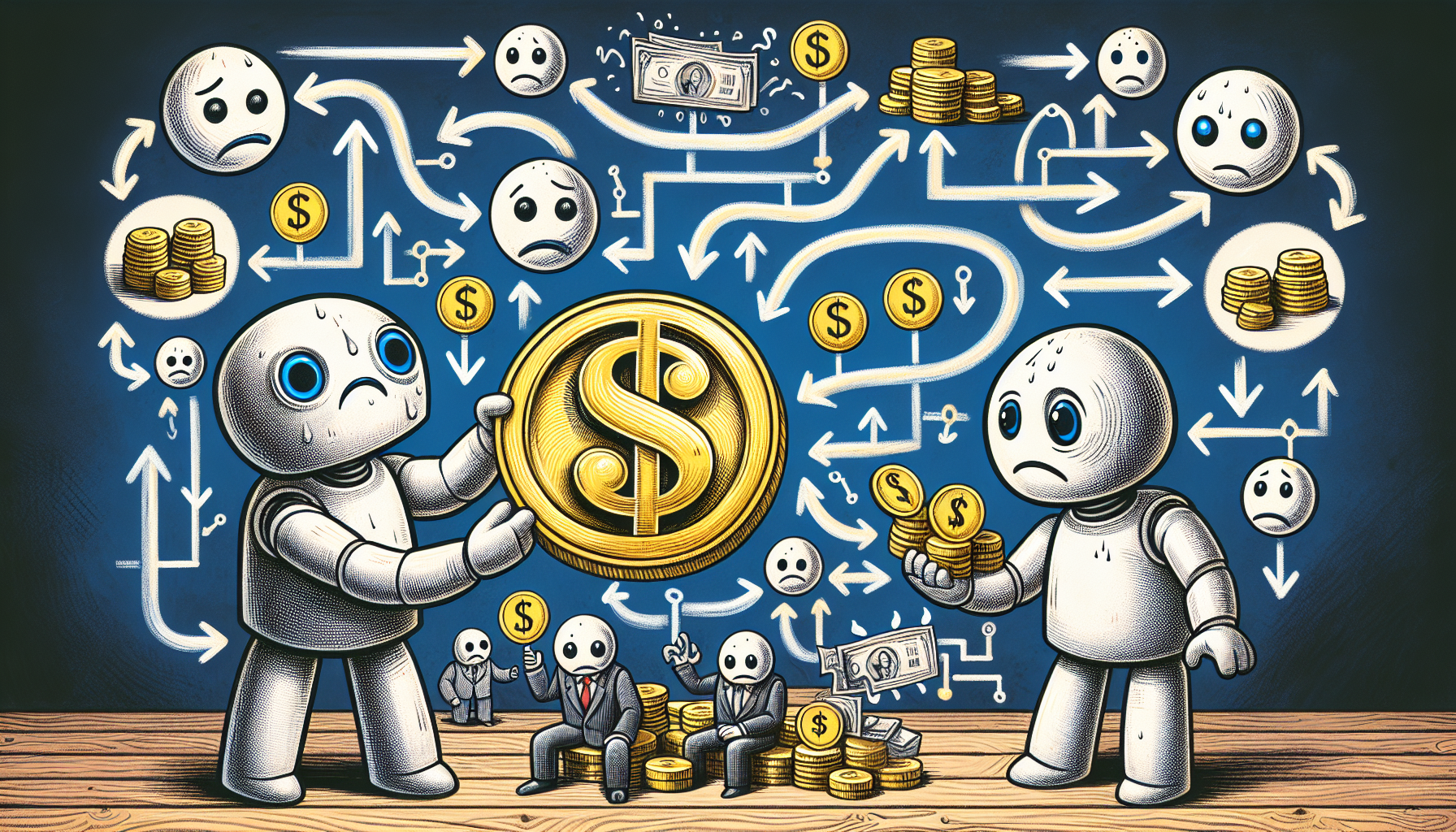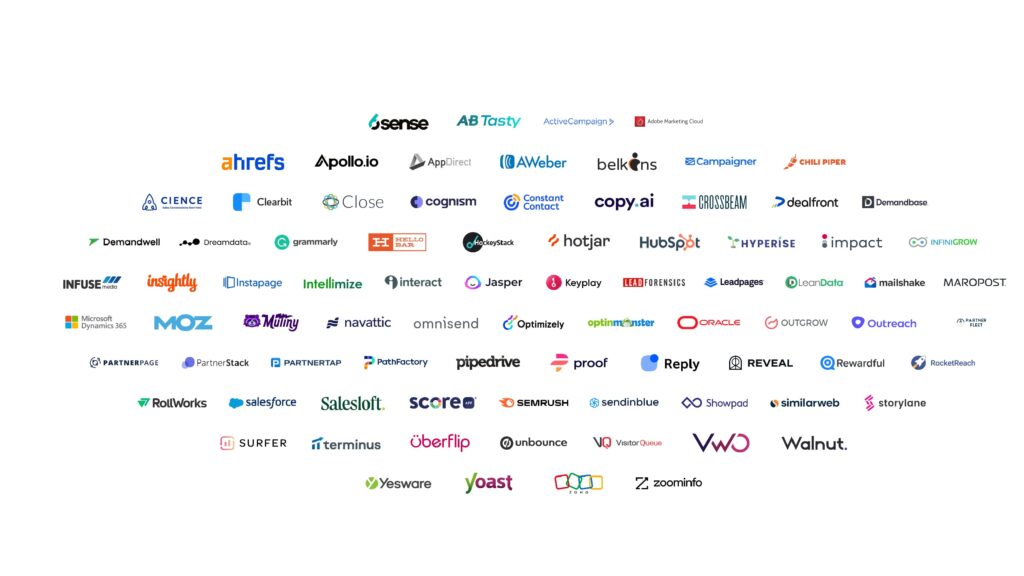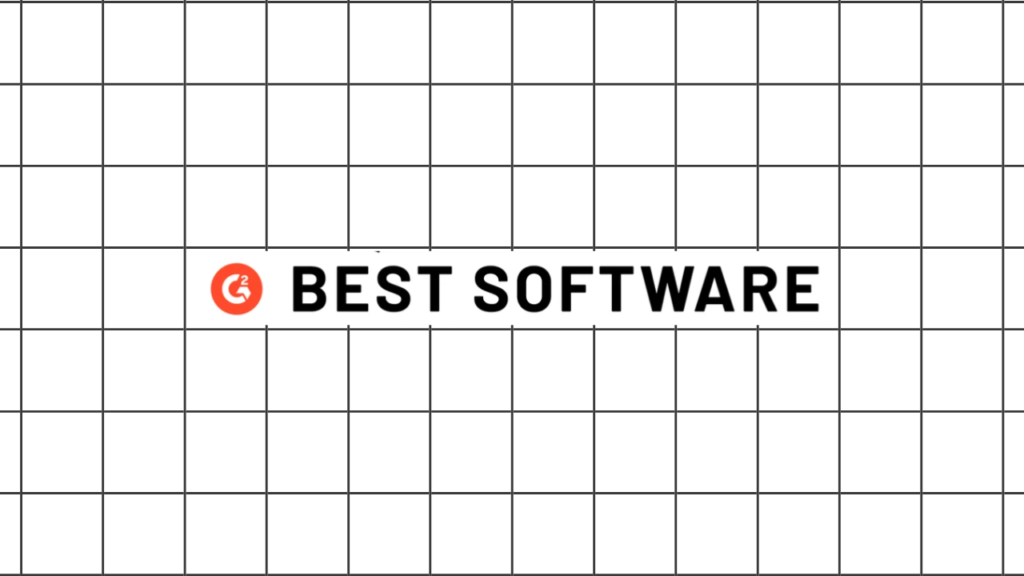You probably know that “B2B” means Business-to-Business. But do you know what it really means to be a B2B business, and the nuances of B2B with B2C (Business-to-Consumer), B2G (Business-to-Government), and even B2B2C (Business-to-Business-to-Consumer).
This article covers the essentials of B2B, distinguishes it from consumer-focused models, and arms you with strategies that industry leaders use to thrive in this space.
Key Takeaways
- B2B (Business-to-Business) refers to transactions between businesses and is characterized by exchanges of goods, services, or information, with digital advancements like e-commerce shaping modern B2B commerce.
- Business-to-business companies differ from business-to-consumer companies, focusing on the individual consumer. Purchasing decisions tend to be more considered in business-to-business transactions, with more high value deals.
- The B2B ecosystem includes manufacturers, wholesalers, and B2B service providers who engage in supply chain dynamics ranging from planning to product delivery. A successful B2B strategy requires strong relationships, trust, effective communication, and digital marketing tactics like SEO and content marketing.
- B2B commerce faces challenges like managing cash flow and late payments, and sustaining innovation and customer loyalty, which can be addressed through strategic planning, communication, and employing digital tools. Real-world successful B2B companies like HubSpot and ZoomInfo innovate and maintain customer-centric approaches.
- A January 2023 study examining the leading 100 worldwide brands (inclusive of both Business-to-Business (B2B) and Business-to-Consumer (B2C) sectors) found the Business-to-Business segment accounts for 41% of their overall value.
Demystifying B2B: The Meaning and Purpose
Business-to-Business, also known as B2B, refers to transactions taking place between two businesses. The objective of these transactions is to facilitate the exchange of goods, services, or information between businesses, enabling them to fulfill their respective needs and objectives. The categories of products or services commonly associated with B2B transactions include manufacturers and service providers, resellers, and service firms that promote their services to other businesses.
The B2B model has become increasingly popular, largely due to the evolution of e-commerce and digital technologies. The rise of online platforms has made it easier than ever for businesses to connect, communicate, and transact, accelerating the growth of B2B commerce.
Defining B2B
Business-to-Business, or B2B, is a term used to describe the exchange of products, services, or information between businesses, including private businesses. The business to business model is characterized by typical business b2b transactions, which may encompass wholesale purchases of products and various services that one business offers to other businesses. In some cases, a business sells its own products and or services directly to another business, contributing to economic expansion, global trade, and a substantial portion of overall economic activity.
Over time, the B2B landscape has experienced substantial transformations, particularly with the progression of the digital era. These changes include:
- Digital Platforms and Marketplaces: Facilitated global reach and simplified the process of finding clients and suppliers, transforming procurement and sales strategies.
- Data-Driven Decision Making: Enabled businesses to leverage big data and analytics for more informed strategic planning, market analysis, and operational optimization.
- E-Commerce for B2B: Revolutionized procurement by allowing businesses to purchase goods and services online, improving efficiency and reducing costs.
- Digital Marketing and Sales Strategies: Transformed promotional activities with SEO, content marketing, and social media, enhancing customer engagement and lead generation.
- Cloud Computing: Provided scalable and flexible IT solutions, enabling businesses to adapt quickly to market changes and operational demands.
As a result, these changes have contributed to the establishment of B2B marketing as a distinct discipline with its own strategies and practices.
B2B vs. B2C vs. DTC vs. B2G vs. B2B2C
Understanding the nuanced differences between B2B (Business-to-Business), B2C (Business-to-Consumer), DTC (Direct-to-Consumer), B2G (Business-to-Government), and B2B2C (Business-to-Business-to-Consumer) models is important for crafting effective strategies tailored to each audience.
B2B stands as a model focused on transactions between businesses, often emphasizing long-term relationships and complex decision-making processes. In contrast, B2C targets individual consumers, often prioritizing speed and convenience, while DTC cuts out intermediaries to directly reach consumers, leveraging digital platforms for a personalized shopping experience.
B2G introduces another layer, highlighting transactions between businesses and government entities, where businesses must navigate the intricate regulations and procurement processes specific to public sector dealings. This model demands a deep understanding of government contracts, compliance, and the long sales cycles typical of government procurement.
The B2B2C model blends elements of B2B and B2C, where a business sells through another business to reach the end consumer. This strategy leverages the strengths of both models to provide value to the business partner and superior service to the ultimate consumer, often facilitating seamless transactions and enhanced customer experiences through innovative technology solutions.
Each of these models requires distinct marketing strategies, customer relationship management approaches, and operational tactics. B2B marketing focuses on relationship-building and solving complex business needs, whereas B2C and DTC emphasize immediate solutions and emotional engagement. B2G marketing must address the specific needs and compliance requirements of government agencies, and B2B2C strategies must cater to both the business partners and the final consumers, balancing the needs and expectations of both.
Understanding these differences enables businesses to tailor their strategies effectively, ensuring that they meet the unique needs of their target audiences, whether they are other businesses, consumers, government entities, or a combination thereof.
The B2B Ecosystem: Key Components and Players
The business to business ecosystem comprises a complex network of interconnected entities that work together to facilitate successful business-to-business transactions. The primary elements of the B2B ecosystem consist of a well-defined B2B strategy, a digital ecosystem of industry participants, and diverse systems such as Enterprise Resource Planning (ERP) and Customer Relationship Management (CRM) systems. The key players in this ecosystem include industry players, B2B marketplaces, and complementary businesses in partner ecosystems.
In the B2B ecosystem, there are several key players:
- Manufacturers: Produce bulk goods for sale to wholesalers or direct to other businesses.
- Wholesalers: Purchase goods in bulk from manufacturers to resell to retailers or other businesses.
- Service Providers: Offer specialized services, such as IT support, consulting, or logistics, to businesses.
- Distributors: Market and sell products on behalf of manufacturers, often providing additional sales support.
- Retailers: Buy and sell products to other businesses, sometimes as part of a supply chain.
- Suppliers: Provide the raw materials or components needed for manufacturing processes.
- Exporters/Importers: Handle the trade of goods across international borders.
- Technology Providers: Supply software and technology solutions to support B2B operations.
- Logistics and Transportation Providers: Offer services to manage the movement and storage of goods.
- Government and Regulatory Bodies: Set regulations that govern B2B transactions.
- Financial Institutions and Investors: Offer funding, investments, and financial services to businesses.
- Trade Associations and Chambers of Commerce: Support networking and advocacy within specific industries.
Each of these players plays a significant role in the B2B industry.
Supply Chain Dynamics
In B2B commerce, supply chain dynamics are of paramount importance. The operational mechanism of supply chain dynamics encompasses the processes of:
- Planning
- Design
- Production
- Storage
- Inventory management
- Order fulfillment
These processes are essential for B2B companies, including construction companies and industrial cleanup companies, to maintain competitiveness and meet the needs of potential customers and their clients. Partnering with marketing firms can help them achieve these goals.
The principal components of supply chain management in B2B comprise:
- Planning
- Sourcing and procurement
- Manufacturing
- Delivery
- Returns
- Integration
Supply chain management plays a crucial role in B2B success by encompassing all stages of commerce, from material procurement to product delivery, thereby forming the essential framework for both offline and online B2B operations.
B2B Marketplaces
B2B marketplaces are transforming the way businesses engage in transactions, acting as digital platforms that connect companies with suppliers, manufacturers, and service providers. Platforms like Alibaba, Amazon Business, and ThomasNet streamline procurement by offering global supplier access, competitive pricing, and efficient transaction tools such as RFQs and bulk ordering.
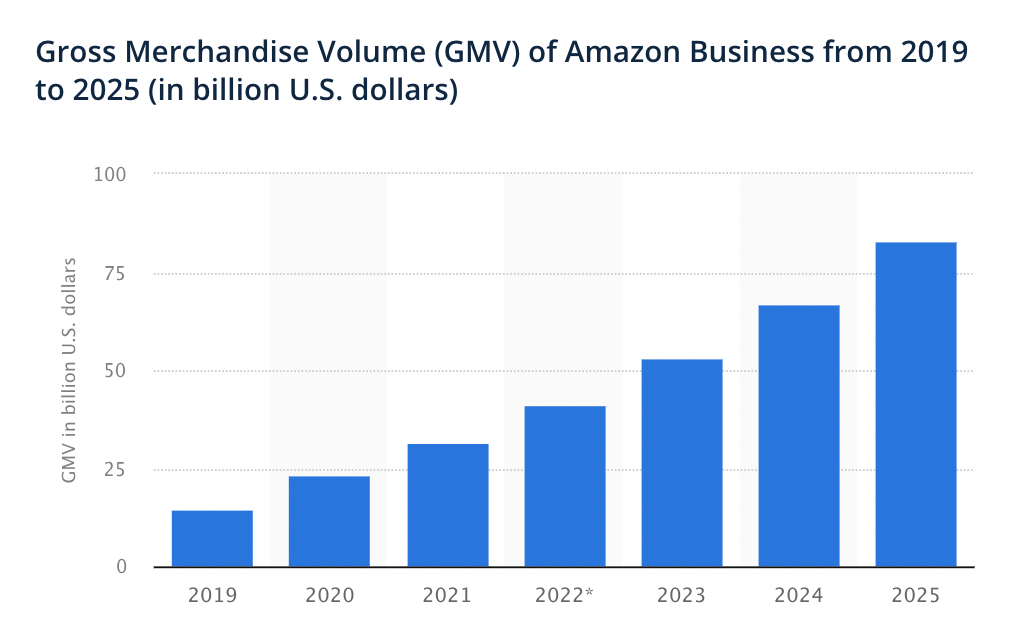
They also enable businesses to expand their reach, access detailed supplier
In addition to these benefits, B2B app marketplaces specifically cater to the digital needs of businesses by providing a wide range of software solutions and applications designed to enhance operational efficiency, from CRM and project management tools to specialized industry-specific applications.
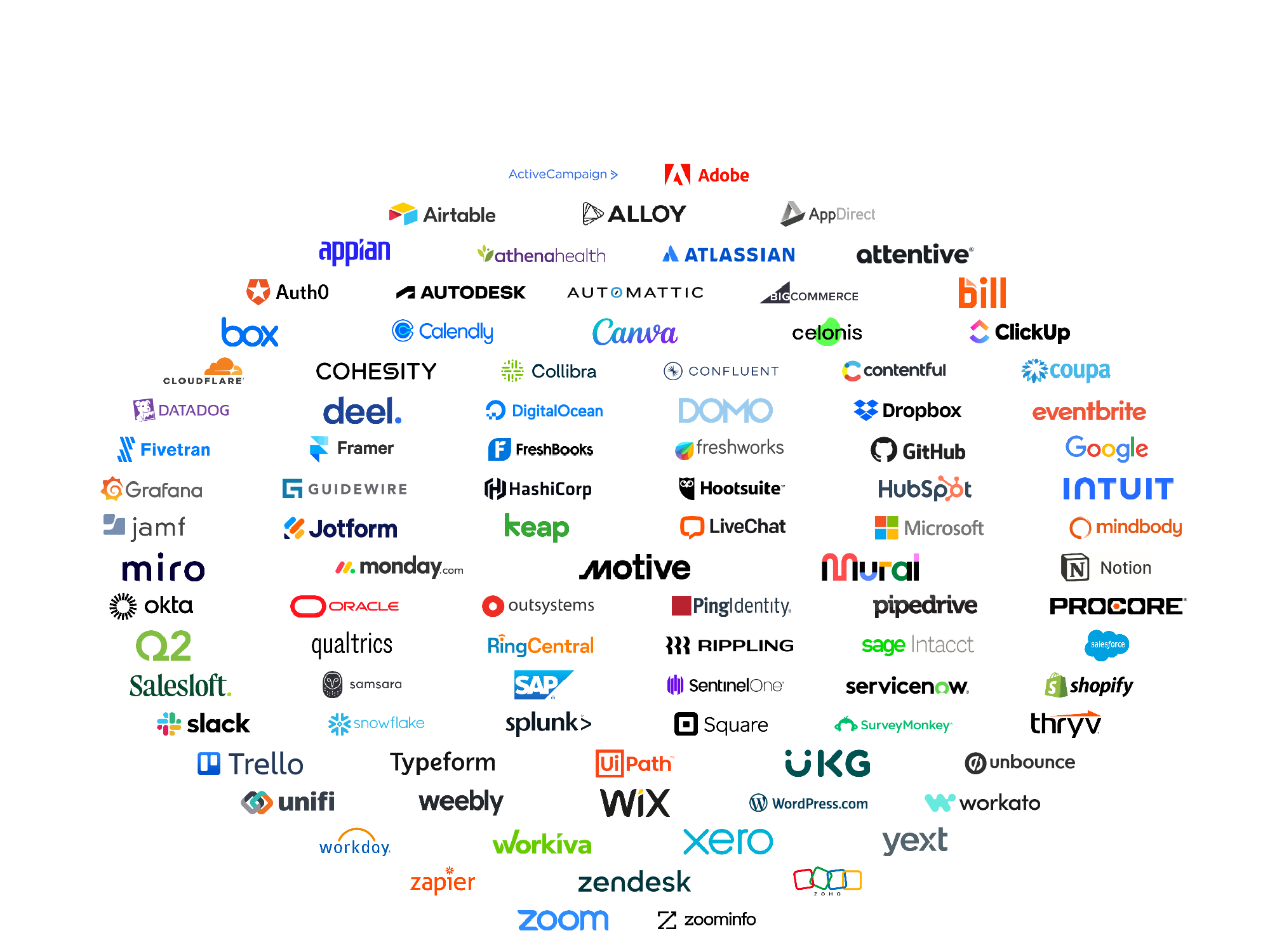
These app marketplaces not only simplify the process of finding and implementing business software but also offer the opportunity for businesses to access and integrate technologies and services that can drive digital transformation and competitive advantage.
Major B2B Industries
In business to business commerce, there are many industries or sector, such as:
- Technology
- Software and SaaS (Software as a Service)
- IT and Managed Services
- Cybersecurity services
- Cloud computing and data centers
- Healthcare
- Medical equipment and supplies
- Pharmaceutical manufacturing
- Healthcare IT solutions
- Biotechnology
- Manufacturing and Industrial
- Machinery and equipment manufacturing
- Chemical manufacturing
- Textiles and apparel production
- Aerospace and defense
- Finance and Insurance
- Banking technology solutions
- Fintech and payment processing
- Commercial insurance and risk management
- Investment banking and advisory services
- Energy and Utilities
- Renewable energy technology and equipment
- Oil and gas equipment and services
- Utility management software
- Energy storage and battery solutions
- Construction and Real Estate
- Construction equipment and technology
- Commercial real estate services
- Architectural and engineering services
- Property management software
- Telecommunications
- Network infrastructure and equipment
- Wireless communication systems
- Telecommunication services for businesses
- Satellite communication technology
- Logistics and Transportation
- Freight and shipping services
- Warehouse and inventory management solutions
- Fleet management software
- Logistics and supply chain consulting
- Professional Services
- Business consulting and advisory
- Legal and regulatory compliance services
- Accounting and financial services
- Marketing and advertising services
- Education and Training
- Corporate training and eLearning solutions
- Educational technology and software
- Professional certification and continuing education
- School and university management systems
These industries illustrate the diverse nature of B2B commerce and the array of sectors it encompasses. And within each sector, like manufacturing, there are sub-sectors, like auto manufacturing.
The auto manufacturing industry involves a wide range of companies in its supply chain. These auto manufacturers, from traditional automakers to electric vehicle startups, are focused on advancing technology, improving environmental sustainability, and enhancing safety. This industry is rapidly evolving, driven by investments in research and development to meet the increasing demand for efficiency and eco-friendly transportation solutions.
Strategies for Success in B2B Markets
To be successful in business to business markets, strategic planning and execution are required. The fundamental components for establishing robust relationships in B2B markets include building strong connections, earning trust, communicating effectively, seeking mutual benefit, and employing relationship marketing and sales techniques.
In order to enhance B2B strategies, a business should:
- Engage in thorough research to gain a better understanding of the market
- Implement a niche-driven strategy
- Optimize the website for optimal performance
- Utilize a range of digital marketing tactics to connect with and captivate potential clients.
Enhancing the satisfaction of customer needs in B2B strategies entails:
- Optimizing the sales process to efficiently close deals while ensuring profitability
- Proactively identifying and resolving potential issues
- Gaining insight into clients’ businesses and requirements through the use of open-ended questions
- Providing tailored support
- Upholding transparent communication
Building Strong Relationships

- Efficiently reaching a wider customer base
- Effectively conveying the intended message
- Demonstrating the value offered
- Actively listening to customer requirements
- Treating customers as collaborative partners
- Adapting communication to suit their preferences
- Nurturing ‘Top-to-Top’ relationships
- Maintaining consistent communication through diverse channels
- Surpassing customer expectations.
Trust also holds great significance in B2B relationships as it serves as the cornerstone for sustained business prosperity. Trust plays a crucial role in customer acquisition and retention, fosters credibility, cultivates robust connections, and contributes to enhanced customer retention.
A long-term commitment in B2B client relationships results in heightened customer loyalty, increased repeat purchases, business and referrals, a stronger sense of trust and mutual understanding, improved collaboration, and plays a substantial role in long-term business expansion.
Leveraging Digital Marketing
Digital marketing is a critical strategy for achieving B2B success. SEO plays a pivotal role in B2B digital marketing by enhancing organic search engine traffic, elevating keyword rankings, and amplifying visibility for B2B company websites. Content marketing also plays a significant role in enhancing a B2B company’s online presence by utilizing various forms of content, such as blog posts, to draw in, interact with, and convert business clients.
In addition to SEO and content marketing, targeted advertising is also a key strategy in B2B marketing. Recommended best practices for targeted advertising in the B2B sector encompass:
- Utilizing a diverse range of marketing strategies to effectively engage with the business audience
- Targeting advertising to convey the right messages that align with the buying committee
- Utilizing tools to monitor and evaluate campaign performance and analyze the return on investment (ROI) of social media marketing through metrics such as reach, engagement, and conversion.
Overcoming Challenges in B2B Commerce
As with any business model, business to business commerce presents its unique set of challenges.
Managing Cash Flow and Late Payments
For the financial health and sustainability of B2B businesses, effective cash flow management is indispensable. Recommended strategies for effectively managing cash flow in B2B companies include:
- Closely monitoring cash flow
- Making frequent projections
- Identifying issues early
- Understanding basic accounting principles
- Conducting cash flow forecasting
- Automating invoice chasing
- Meticulously tracking expenses
- Decreasing liabilities and improving assets
- Conducting a bottoms-up budget review
- Opening more payment channels
- Automating payments.
Late payments in B2B transactions can pose a significant challenge to businesses, potentially disrupting cash flow and straining business relationships. B2B enterprises can address delayed payments by:
- Establishing effective communication and robust payment policies
- Setting clear payment terms
- Optimizing payment processes
- Maintaining an open line of communication with customers
- Being proactive in reaching out before payment deadlines approach
Effective financial planning, such as recommending the use of payment instalments instead of lump sums, developing short-term cash flow plans, and consistently monitoring cash balances, can also assist B2B companies in managing cash flow.
Innovation and Customer Loyalty
The success of B2B businesses can be significantly influenced by two key factors: innovation and customer loyalty.
In a B2B context, customer loyalty entails fostering enduring partnerships with other enterprises, resulting in recurring transactions, recommendations, and consistent revenue.
B2B companies can improve customer loyalty by:
- Engaging in regular communication with customers
- Implementing referral programs
- Fostering a community among B2B buyers
- Establishing a tiered incentive system
- Identifying and addressing customer needs
- Integrating loyalty program strategies
- Aligning efforts across departments
- Evaluating pertinent metrics
- Clearly conveying loyalty intentions and expectations to customers.
B2B businesses can effectively measure customer loyalty by utilizing metrics such as Net Promoter Score (NPS), conducting customer satisfaction surveys, implementing referral programs, and tracking customer engagement in loyalty programs.
Some of the most successful B2B companies that have managed to enhance customer loyalty through programs such as:
- American Express Business Gold Rewards
- FedEx Business Bonus
- IBM Client Rewards
- Staples Advantage
- Vistaprint Pro Advantage
Innovation, on the other hand, is all about creating solutions that address the unique challenges of business customers, enhancing efficiency, productivity, and competitive advantage. These innovations often leverage technology to streamline operations, improve customer experiences, and enable smarter decision-making.
A specific example of innovation at a B2B company is GE Healthcare’s use of AI and machine learning in its medical imaging equipment. This technology helps healthcare providers to achieve more accurate diagnoses, optimize workflow, and improve patient outcomes by enhancing the detail and reliability of imaging data, demonstrating how innovation can have a profound impact.
Having explored the complexities of B2B commerce, let’s now examine some successful B2B companies in the real world.
HubSpot: A Leading Software B2B Business
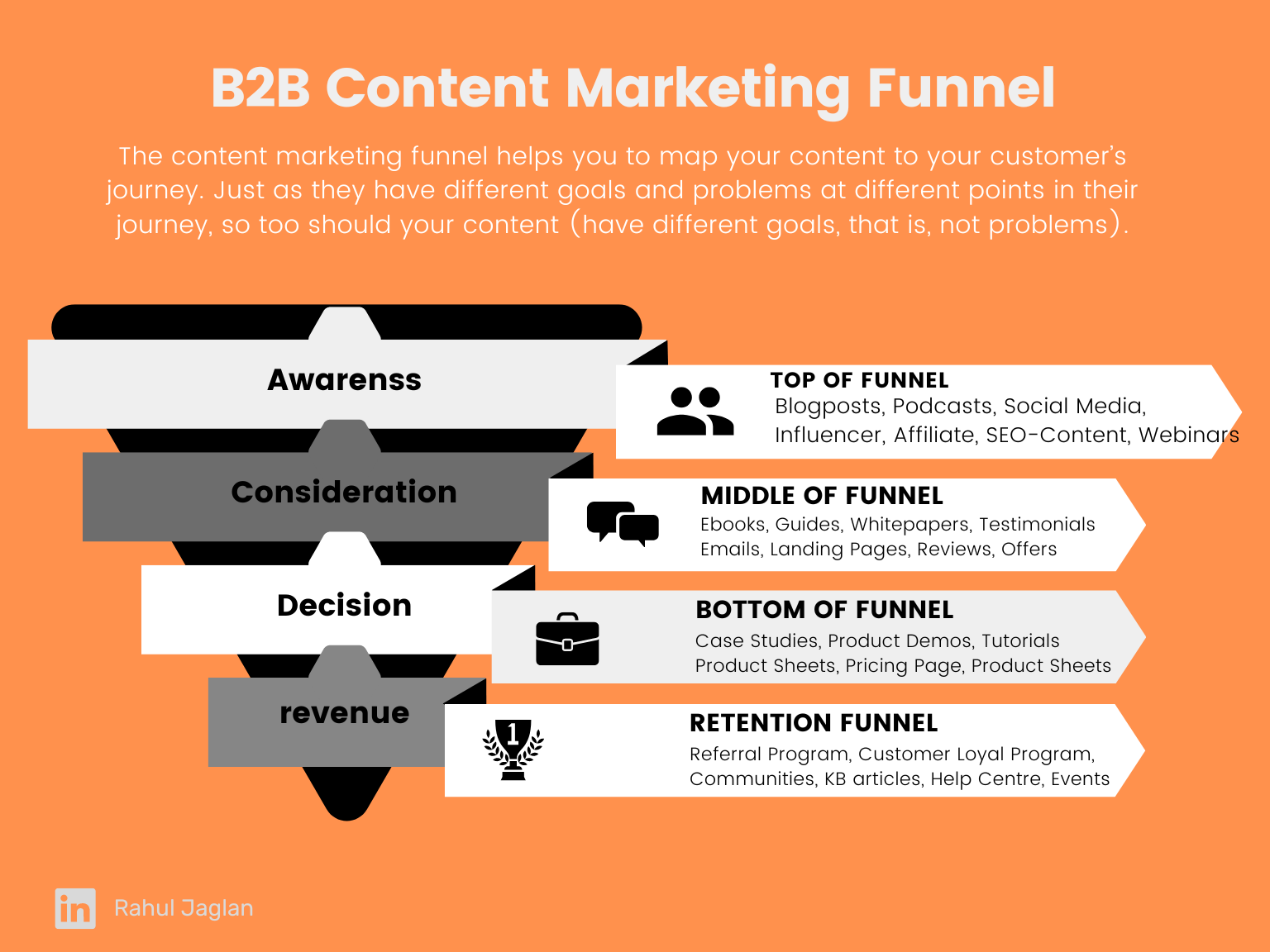
Offering a comprehensive suite of tools, HubSpot enables businesses to more effectively manage their marketing, sales, and customer service efforts. The company’s platform includes features such as:
- CRM
- Landing pages
- List segmentation
- Email marketing
- Workflows
- Paid ad tracking
- Social media integration and management
- RevOps
- Analytics and reporting
HubSpot’s commitment to the concept of inbound marketing, whereby individuals prefer self-serving on company websites and being assisted rather than interrupted by marketers and salespeople, has been a key factor in its success. It’s been transitioning from servicing small businesses to larger businesses.
Its comprehensive CRM platform, tailored for efficient lead tracking and nurturing, and its wide range of inbound marketing tools set it apart in the B2B marketplace.
GE: A Leader in B2B Manufacturing
General Electric (GE) is a leader in business to business manufacturing excellence, providing cutting-edge solutions across various sectors, including aviation, power, healthcare, and renewable energy.
GE’s offerings encompass:
- Advanced Manufacturing Processes
- Engineered Solutions
- Digital Twin Technology
- Predictive Maintenance
- Supply Chain Optimization
- Customized Product Development
- Comprehensive Support Services
GE leverages its vast expertise in technology and engineering to deliver high-quality, innovative products that meet the complex needs of its customers. By integrating IoT and AI into its manufacturing processes, GE enhances operational efficiency and product performance, offering a competitive edge to businesses in demanding industries.
Sysco: A B2B Distributer
Sysco is a global business to business leader in selling, marketing, and distributing food products, kitchen equipment, and tabletop items to restaurants, healthcare and educational facilities, lodging establishments, and other customers who prepare meals away from home. Its network is designed to efficiently manage the supply chain for its diverse customer base.
Key features include:
- Extensive Food Service Distribution
- Supply Chain Management Solutions
- Business Review and Consulting
- Menu Analysis and Design
- Online Ordering and E-commerce Solutions
- Customized Product Delivery
- Nutritional and Dietary Support Services
Sysco’s dedication to enhancing the dining experience extends beyond delivering quality products. It offers value-added services such as business insights, culinary consulting, and food safety expertise, ensuring its clients have everything they need to succeed in the competitive foodservice industry.
Accenture: A Global B2B Service Powerhouse
Accenture is a leading business to business global professional services company, providing a broad array of services and solutions in strategy, consulting, digital, technology, and operations mainly for larger businesses.
With a focus on innovation and transformation, Accenture’s offerings include:
- Strategy and Consulting
- Interactive Services
- Technology Innovations
- Operations Services
- Comprehensive Digital Transformation
- Cybersecurity and Compliance Solutions
- Cloud and Enterprise Application Services
Accenture’s approach to solving clients’ toughest challenges is rooted in a deep partnership model, leveraging its industry expertise and embracing emerging technologies to drive growth, efficiency, and sustainability.
Fiserv: Leading B2B FinTech Innovator
Fiserv is a global business to business leader in financial services technology solutions, offering an extensive portfolio of products and services that facilitate payment processing, banking solutions, and financial risk management for businesses worldwide.
Its key offerings include:
- Payment and Network Services
- Account Processing Solutions
- Risk and Compliance Management
- Digital Banking Solutions
- Financial Crime Risk Management
- Investment Services
- Data Analytics and Customer Insights
Fiserv’s commitment to innovation helps financial institutions and businesses of all sizes navigate the evolving digital financial landscape, improve operational efficiency, and deliver superior customer experiences. By leveraging technology, Fiserv enable secure and efficient transactions in the global economy.
S&P Global Inc: Expert in B2B Financial Information and Analytics
S&P Global Inc is a business to business firm renowned for its deep expertise in providing actionable intelligence, data analytics, and ratings to the global financial community. Offering comprehensive solutions that include:
- Credit Ratings
- Market Intelligence
- Risk Assessment
- Benchmarking Services
- Energy and Commodities Insights
- Economic and Country Risk Analysis
- Environmental, Social, and Governance (ESG) Solutions
S&P Global empowers investors, companies, and governments with the critical information needed to make informed decisions and foster economic growth. Its commitment to integrity, transparency, and delivering high-quality analytics makes S&P Global a trusted partner in the financial sector, aiding clients in navigating market complexities and achieving investment and operational excellence.
Summary
B2B commerce plays a pivotal role in today’s economy, facilitating a wide range of transactions and relationships between businesses. Understanding the intricacies of B2B, from its meaning and purpose to the key components and players in its ecosystem, is an important first step to achieving success in the marketplace.
Strategies such as building strong relationships, leveraging digital marketing, and overcoming common challenges can significantly boost a business’s performance in the B2B landscape. Real-world examples of successful B2B companies, such as HubSpot and Accenture, serve as an inspiration for other B2B companies looking to make their mark in the B2B space.
Frequently Asked Questions
What is B2B and B2C?
B2B refers to business-to-business transactions, which occur between two businesses, while B2C refers to business-to-consumer transactions, which take place between a business and individual customers. In the business to business model, there are business to business transactions. In B2C, there are business to individual consumer transactions. There are business to business companies in many industries, from automobile manufacturer to advertising agency to property management to gas companies, and beyond.
Is Amazon a B2B or B2C?
Amazon operates in both B2B (Business to Business) and B2C (Business to Consumer) segments. Its B2C operations include its well-known online retail platform, offering a wide array of products and services to individual consumers. In the business to business, Amazon Business caters to the procurement needs of organizations, offering bulk purchasing options and business-specific features. Additionally, Amazon Web Services (AWS) provides cloud computing solutions to businesses, governments, and educational institutions.
What are some strategies for success in B2B markets?
To succeed in B2B markets, B2B companies should focus on building strong client relationships, using digital marketing effectively, and prioritizing customer needs. These strategies are crucial for achieving success in the B2B sector.
What are some challenges faced by B2B businesses?
B2B businesses commonly face challenges such as managing cash flow, dealing with late payments, and maintaining customer loyalty. These are important factors to consider for the success of a B2B enterprise.
Author
-
I'm the Founder and Editor-In-Chief of B2B SaaS Reviews. I'm also the Director of Demand Generation at PartnerStack, the #1 platform purpose-built for partner management and affiliate marketing in B2B SaaS. Before PartnerStack, I worked for other go-to-market B2B SaaS companies: Influitive (Advocate Marketing designed to generate more reviews, references, and referrals), LevelJump (Sales Enablement) (acquired by Salesforce) and Eloqua (Marketing Automation) (acquired by Oracle).



